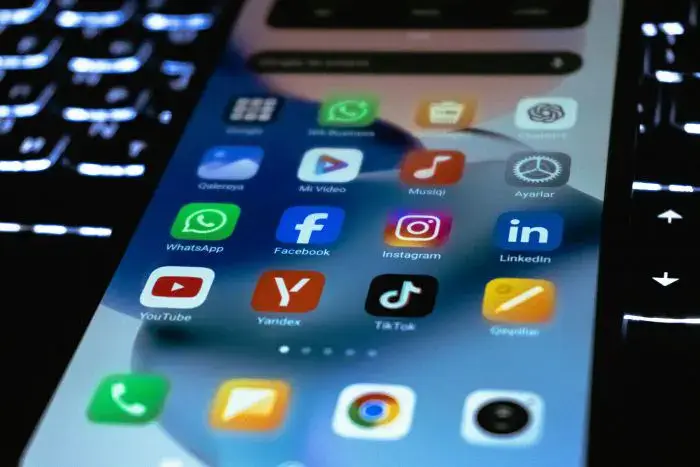The Dead Internet Theory suggests that more and more online activity is now generated by artificial intelligence (AI) rather than humans. Bots, algorithms, and AI-driven content dominate social media, forums, and even search results, creating an illusion of human interaction. The internet has become a self-sustaining ecosystem of automated content, with real human participation dwindling. The theory reflects growing concerns about authenticity, misinformation, and the blurring line between human and machine-generated content online.
Since the advent of more AI-generated content due to the rise of LLMs, this situation has been accelerated to the extreme.
New data suggests that 50% of the internet is now AI-generated content. This has surged dramatically since 2022 when gen AI models such as ChatGPT were released.
It’s claimed by some analysts that by the end of 2026, 90% of the content online will be AI-generated, and this is clearly a massive issue facing the internet. Whether this is an exaggeration or not, it’s clear that AI content is taken up more and more of the internet, especially as AI models improve with new versions.
The majority of current AI content is often called “slop”, because it’s not very good, or very valuable. The way AI content is generated, is basically by copying original content made by humans and then plagiarizing with minor changes, essentially a very good auto-complete that steals copyrighted works through “training”.
But if the majority of content is AI-generated, AI will start training itself on other AI content, which will undoubtedly lower the quality of new content even more, a sort of AI slop death spiral.
Unfortunately Pandora’s box has been opened, and even if the large tech companies were regulated more, individuals can now use gen AI locally on their own computers.
Another problem is that with so much junk content, it will be harder and harder to find good content. Search engines like Google have already become worse and worse as the years go on. Google results from 2010 were far more useful and accurate than the results we get in 2025.
Now gen AI chatbots themselves are trying to take over search, and that’s an even worse situation, because they still frequently and confidently hallucinate false information.

This makes matters worse, with an influx of content being uploaded, more and more storage space will be needed for servers. RAM and storage space has already increased in price to match the needs of generative AI. DRAM prices have surged 171% year by year due to AI demands. These components don’t last forever either, they have a limited lifespan for use, and thus the demand will likely outpace the supply and squeeze consumers and businesses more and more. Already there are supply shortages, and many are announcing a pricing apocalypse that will impact the whole tech industry.
Cloud providers in the USA and China are facing significant fulfilment gaps for DDR5 memory, now only able to receive about 70% of what they order. With the growth of AI and the push for it to increase productivity in every sector, it’s clear that this problem will only get worse.
The Dead Internet Theory itself has massive implications for the internet and how it’s used. One of the main drivers of profit for web-based services, are advertisements. But if poor AI content floods the internet more and more, and bots become more and more of the viewers, this will undoubtedly start to put off more advertisers, because there’s no point in advertising to bots who won’t buy products.
To again make matters worse, AI and automation are reducing jobs, and if there are less jobs, there are less consumers. Less consumers means less profit for companies that advertise, which in turn means less advertisement budget, and the competition for a dwindling advertisement budget becomes more and more problematic for any business that relies upon it online.
These problems are becoming more and more apparent every year, as we seemingly hurtle over the cliff edge into late-stage capitalism and all the problems involved.
Some think that the internet will be like everything else, it’s had its rise and now it will have its fall. User engagement across various major platforms has fallen over recent years, as users tire of doomscrolling and the seemingly endless influencer content that projects an extravagant lifestyle unreachable for many people.
Now companies want to replace influencers with AI influencers, and the idea couldn’t be any worse, wanting to push more fakery than ever.
Internet users are starting to be attracted to life offline rather than online. “Better offline” is a trending group, and it’s clearly the best solution to deal with the mess that the internet is becoming, especially when it’s getting increasingly harder to know what’s real and what’s not online with the amount of AI-generated videos.
Commenters online:
“I’ll leave. It’ll be sad, I’ve liked it here on the internet and made some really great friends, but I’m not wading through 90% crap unless I absolutely have to. The internet will die off, this beautiful, incredible resource that’s done so much good and could do so much more good, is being ruined by these garbage slop machines, and it’s so sad, it’s a tragedy.”
“I probably just wouldn’t use it, and would go back to reading print newspapers to stay informed.”
“We just need a new internet.”
“AI-generated content is a trend that will fail. People overwhelmingly hate AI-generated content. People want authenticity, not fake slop and brain rot garbage.”
“It could very well kill social media unless those tech companies find a way to detect and remove AI content.”








